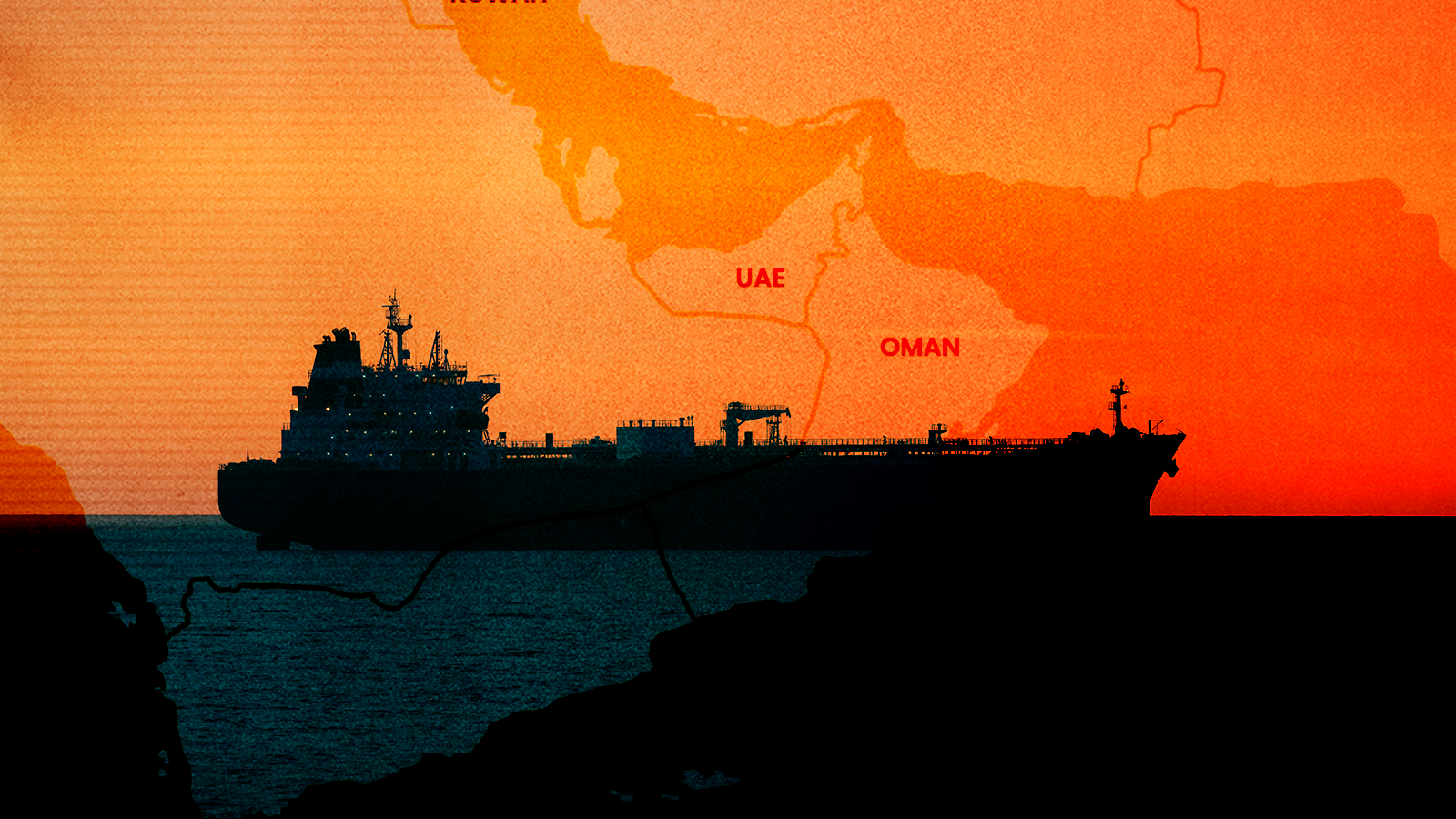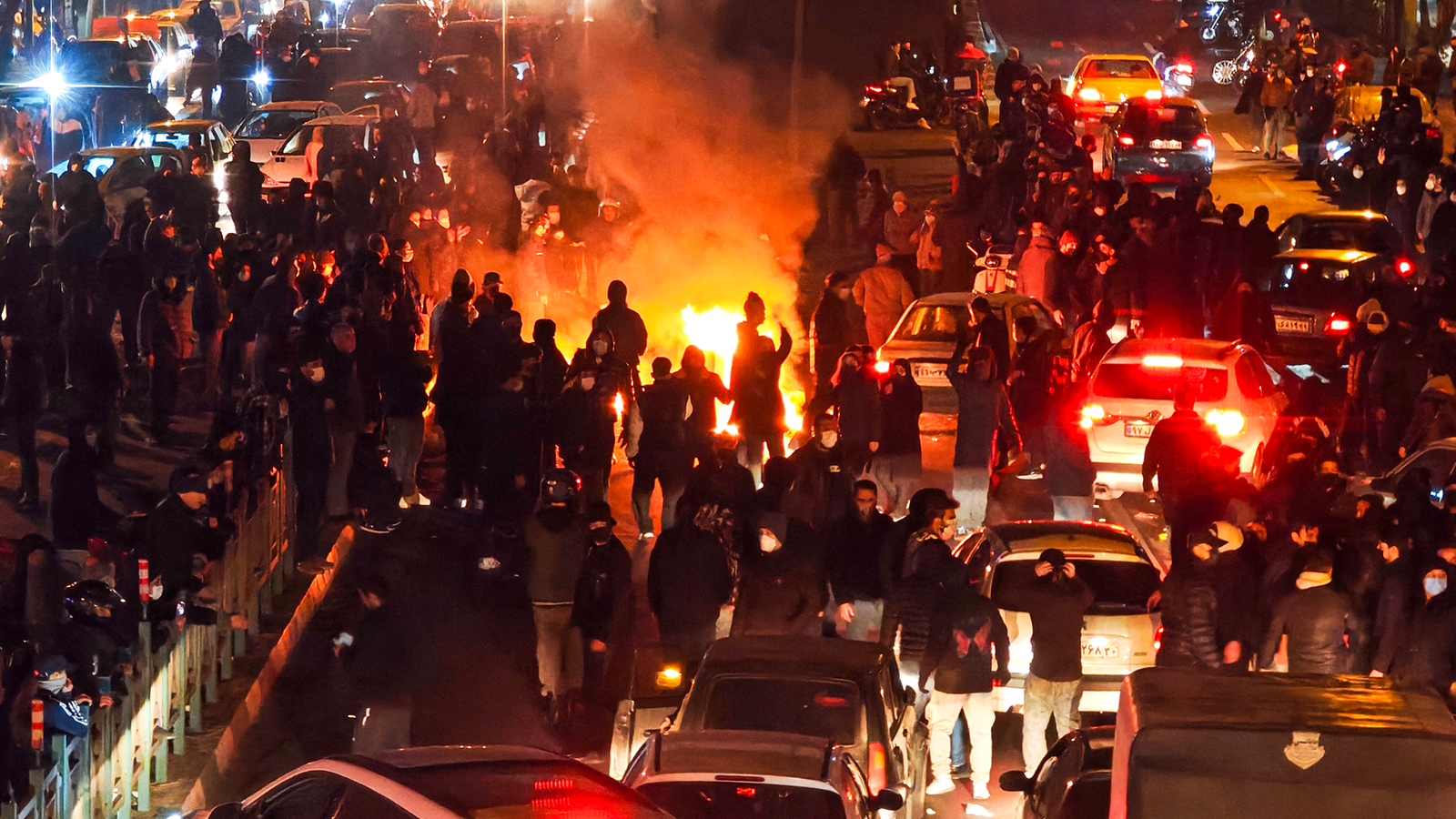Kharon had begun investigating the contours of the helicopter-parts network after a U.S. civil forfeiture action targeted several actors involved in the scheme last year. That forfeiture complaint, Treasury’s new designation, and a Kharon review of corporate registries, trade records and company websites together capture how the network obscured its Iranian military end-users by leveraging agents in Western Europe, a facilitator in Dubai and a cascade of globe-crossing transactions.
Unmentioned in Treasury’s designation was a key alleged supplier based in New Jersey. Some of its helicopter parts have gone not just to Iran’s military-industrial base, Kharon found, but to companies that are tied to Russia’s, too.
The core scheme
The sanctioned parties: Treasury’s Oct. 1 designations, which came in the wake of the UN’s “snapback” on Iranian sanctions, marked the latest U.S. effort to constrain Iran’s military supply chains. The central players that Treasury named in the helicopter-parts scheme were the Iran-based Pasargad Parvaz Kish Helicopter Company (PHC) and its Iran- and Germany-based chief executive, Mehdi Shirazi Shayesteh.Under Shayesteh’s direction, Treasury said, PHC had received “numerous requests” from PANHA, Iran’s main state-owned helicopter company, for helicopters and spare parts and had “used a transnational procurement network” to procure them. PHC had a history of sales to PANHA, the U.S. civil forfeiture complaint reviewed by Kharon says.
- PHC’s ownership, meanwhile, extends deeper into Iran’s sanctioned financial networks: Its stakeholders include Arzesh Afarinan Pasargad Company, the investment arm of the sanctioned Pasargad Bank.
The venture: According to the forfeiture complaint, Shayesteh and Salimi agreed in May 2021 to form a joint venture in Portugal through their respective companies. They found an existing company owned by a Portuguese individual, Antonio Mira, and renamed it Business United Unipessoal LDA.
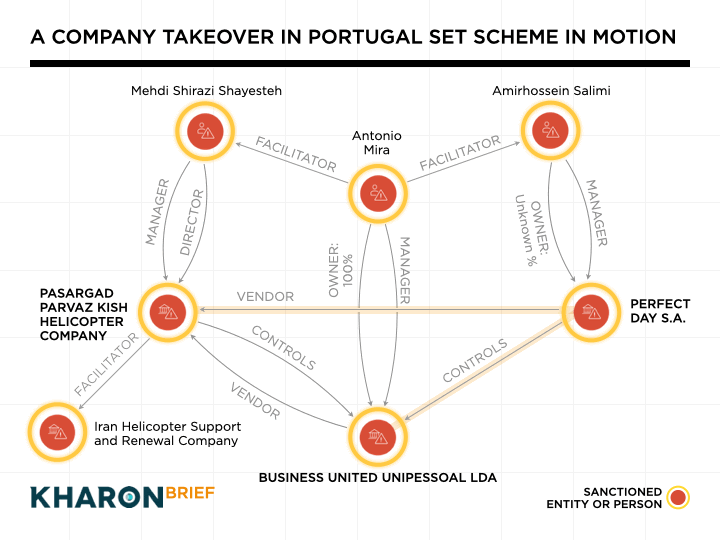
RISK FACTORS:
The U.S. has long prohibited the export or re-export of any goods by U.S. persons to Iran, directly or indirectly, under the Iranian Transactions Sanctions Regulations (ITSR).
But a more specific military-end-use risk applied here: In its news release accompanying the designation, Treasury noted that PANHA “produces helicopters for the [Islamic Revolutionary Guard Corps] such as the Shahed 278 civilian Bell helicopter clone and the Shahed 285 military Bell helicopter clone.”
In any case, while Mira remained the company’s owner and managing partner on paper, Shayesteh and Salimi continued using it as a front to procure helicopter parts, some of U.S. origin, for PHC into late 2024.
An American supplier
Cobra International, based in Union City, N.J., is a company whose website calls it “a supplier and exporter of spare parts and services to the civilian and military market.” Among its clientele, it says, are unspecified “foreign militaries.”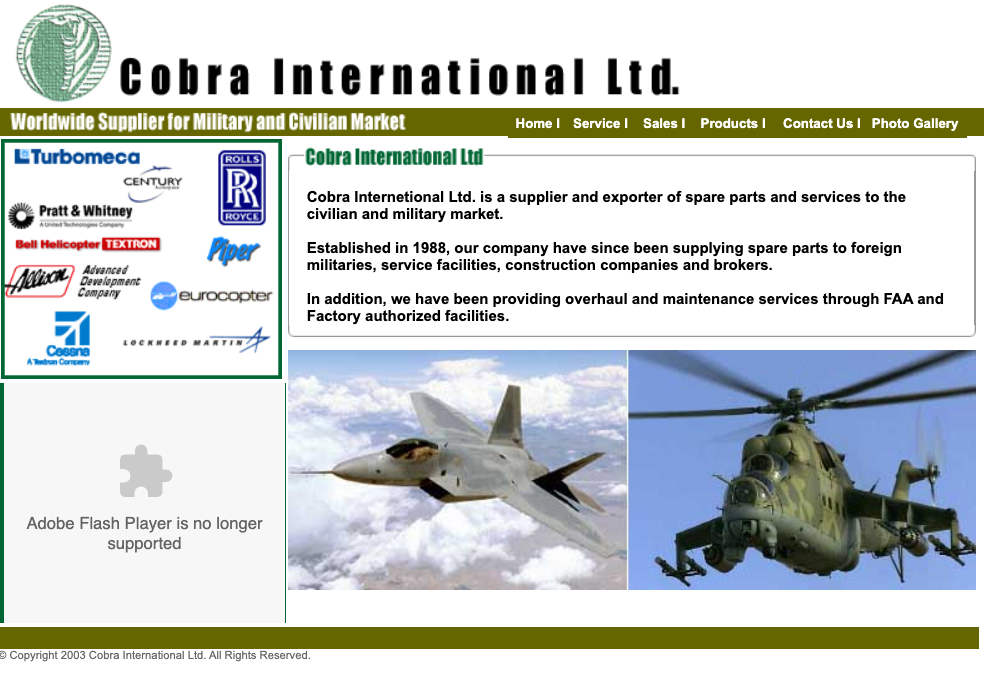
But U.S. authorities intervened and seized the engine this past February, while it was still in Cobra’s possession.
Russian ties: Neither the U.S. forfeiture case nor Treasury’s designation note the network’s apparent procurement activities tied to Russian military end-users. Trade records show that Cobra has transacted with several companies tied to firms sanctioned in recent years for supporting Russia’s defense sector.
- In September 2024, Cobra signed a letter of intent to sell a helicopter engine to Thailand-based Siam Aero Repair Co., Ltd, whose clients include the sanctioned Russian company Obyedinenie Postavshchikov OOO.
- In October 2024, Cobra sold a helicopter blade to India-based Candid Technologies Private Limited. Candid has sold aircraft parts as recently as April to Reka Grup Danismanlik Ve Ticaret Limited Sirketi, which the U.S. sanctioned last year.
- That same month, Candid Technologies shipped the same specific model of main rotor blade to a Turkish company called Fairway International, which, according to corporate records, is owned by two Russian nationals.
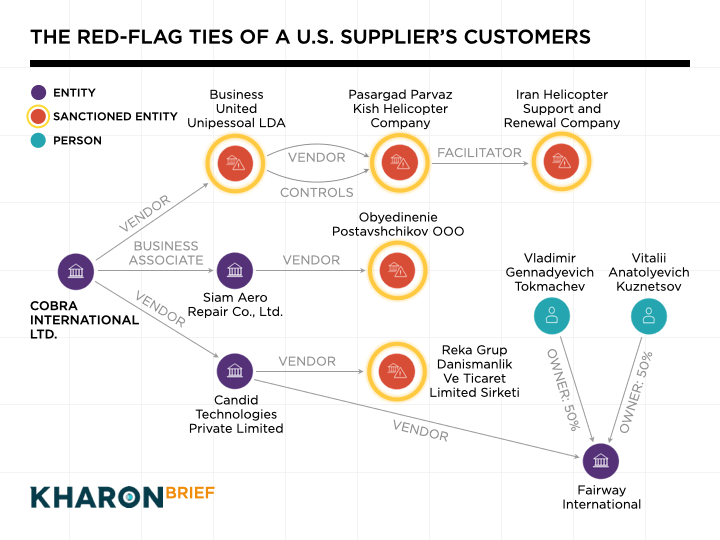
RISK FACTOR:
Aircraft parts are among the items on the Common High Priority List (CHPL), the joint international watchlist of goods most sought by Russia to sustain its military production and the war in Ukraine. The CHPL has served as a focal point for coordinated export controls and enforcement actions against Russia.
Facilitators in Sweden and the UAE
A key facilitator in these transactions, the forfeiture complaint says, was Krishnamurthy Shekar, an aerospace parts broker and Indian national based in Dubai. “According to Cobra,” a December court filing said, Shekar contacted it “in mid-2023 to purchase an Arriel 2B1 helicopter engine for United Business.”- Shekar’s LinkedIn pages list him as a procurement manager both for Cobra and for UAE-based Mohebi Aviation, a travel company with a parts-procurement department. He is also connected to India-based Loyal Aviation, whose website calls it a supplier of aircraft components, through his LinkedIn and a listed email address.
In 2022, when Cobra sold Business United $54,500 USD worth of helicopter parts, Business United asked that the parts be shipped to Nordic Air and Heli Invest, the civil forfeiture complaint says. Once they arrived in Sweden, Aviation Network shipped the parts to PHC in Iran.
The bottom line
With its use of layered intermediaries, third-country brokers and seemingly legitimate front companies in Western Europe, the helicopter-parts network demonstrates the growing sophistication of the illicit supply chains that support sanctioned military programs.But the U.S. enforcement measures here demonstrate a trend of their own: Western authorities increasingly are targeting not only the end-users but also the key facilitators that make that procurement possible.
More from the Kharon Brief:
- After Russia’s Invasion, This Network’s Workarounds Kept American Tech Flowing
- A Chinese Drone Carrier Says It’s Just for Science. Under the Surface Lies a Sea of Military Ties.
- An Export Ban on Joysticks? EU Adds a New Target To Hit Russia’s Military.
- From a London Street, an Accountant’s Network Facilitated Shipments to Russia





